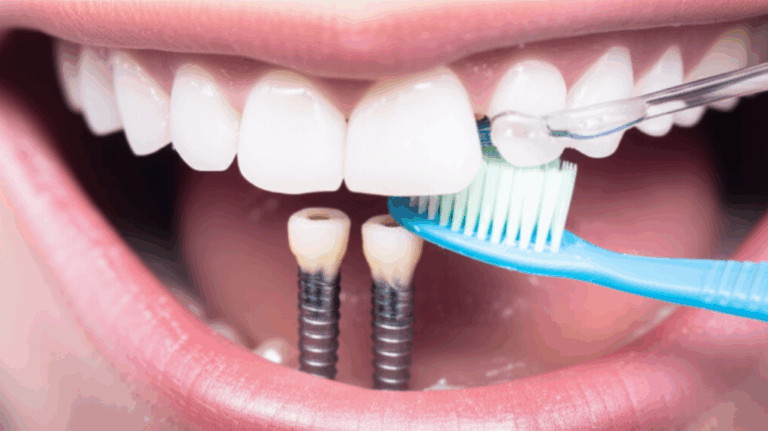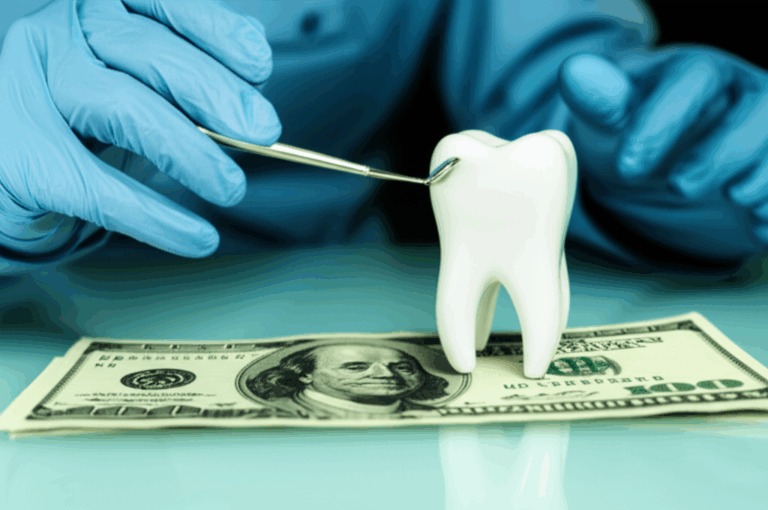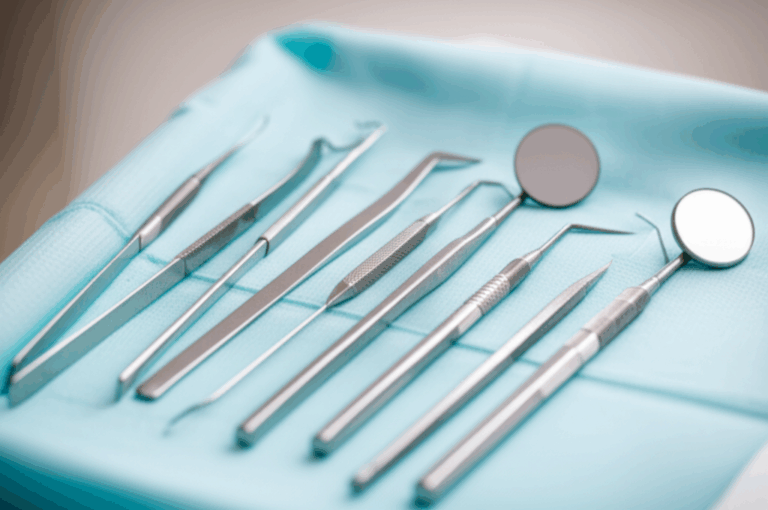
Can Poor Dental Hygiene Cause Stomach Problems? The Surprising Mouth-Belly Connection Explained
That annoying stomach ache. More heartburn than usual. Weird waves of feeling sick. Most of the time, you blame your food or stress. But have you ever thought about your mouth? If you’ve ever asked, “Can not cleaning my teeth well cause stomach problems?” you’re not alone—this is actually a smart question.
Let’s be honest: Most people think the mouth and stomach are totally separate. You brush, maybe floss, and go to the dentist to stop cavities or bad breath. But research now shows there’s a strong link between your teeth and gums and what happens in your stomach. And yes, bad dental habits can definitely play a part in stomach and digestion problems.
In this guide, we’ll make sense of the mouth-gut connection. I’ll walk you through the latest research, show you warning signs, bust common myths, and share simple steps you can start right now. By the end, you’ll feel ready and maybe even surprised at how much your smile affects your whole body.
Table of Contents
- The Mouth-Gut Connection: Simple Science Behind Mouth & Stomach Health
- How Mouth Germs Bother Your Stomach
- Stomach & Digestion Problems Linked to Bad Dental Habits
- The Oral and Gut Microbiome: What’s Going On?
- Symptoms to Watch Out For
- When to Call Your Dentist (and When to See a Gut Doctor)
- Easy Ways to Keep Your Mouth—and Belly—Healthy
- Key Takeaways & What to Do Next
The Mouth-Gut Connection: Simple Science Behind Mouth & Stomach Health
Let’s break this down. Think of your digestion like a big, twisty slide—with your mouth at the top. Everything that goes into your stomach—your food, drinks, even spit (and germs)—starts in your mouth, right? Here’s the simple science:
More Than Just an Opening: Your Mouth’s Hidden Job
Your mouth isn’t there just for chewing and talking. It’s home to billions of germs. Some are helpful, some are not so good. If you don’t brush your teeth well, or have gum disease, those “bad” germs get out of hand. Every time you swallow, you’re sending some of these germs right down to your stomach and gut.
Think of it like this: Imagine the pipes in your house. If you keep dumping junk down the drain, sooner or later you get clogs. Your digestion works the same way. Mouth germs can travel, mess up the good balance in your gut, and lead to gas, pain, reflux, and all kinds of issues.
The “Mouth-Gut Axis”: Why This Link Matters
Scientists call this the mouth-gut axis. It means things go both ways. Germs in your mouth can change your gut, and your gut issues can show up back in your mouth. It’s all part of one big system.
That’s why leaving your dental health alone is about more than just cavities or gum pain. It could be throwing off your whole digestive system.
How Mouth Germs Bother Your Stomach
You might be wondering: “So how does not brushing or skipping floss actually mess with my stomach?” Here’s how it happens:
A. Swallowing Germs: From Plaque to Belly
Everyone has germs in their mouth. But if you don’t keep your mouth clean, the bad germs grow fast. You get plaque (that sticky stuff on your teeth), which can turn into tartar—a hard build-up along the gumline. Plaque and tartar are perfect places for nasty germs that can cause gum problems and tooth decay.
Here’s the thing: Every time you swallow, you send some of those germs from your mouth straight to your stomach. Normally, your stomach acid kills most of them. But if your body is weak, or you have reflux (which lowers acid), more germs make it through.
B. Messing Up Your Gut Germs
Your stomach and gut are full of good bacteria that help you break down food, use vitamins, and keep your immune system strong. This is called your gut microbiome. When you keep sending in bad mouth germs, they can mess up this mix—a problem called dysbiosis.
Dysbiosis means the “bad” germs are winning. That’s when you might feel bloated, gassy, have stomach troubles, or notice that food doesn’t sit right. Inflammation happens and makes everything feel worse.
C. Inflammation All Over: When Mouth Troubles Spread
If your gums bleed or hurt often, you might have periodontitis, which is serious gum disease. Your body sees this as an attack and sends out chemicals that cause inflammation—these chemicals can end up anywhere in your body. After a while, constant mouth inflammation has been tied to more risk for:
- Heart troubles
- Worse diabetes
- Gut diseases (like Crohn’s, colitis, and even stomach ulcers)
Bottom line? Your gums may be small, but their troubles can spread far.
D. Weak Start to Digestion
Believe it or not, digestion doesn’t start in your stomach—it starts in your mouth with saliva. Healthy spit breaks down food, keeps the mouth’s pH normal, and helps kill some germs. If you have bad dental habits, your saliva can change and not work well. That means your stomach has to work harder.
Stomach & Digestion Problems Linked to Bad Dental Habits
Here’s the real deal. Let’s see how common mouth issues connect to what you might feel in your gut. (It’s more than just a stomach ache.)
A. Indigestion & Heartburn (GERD/Dyspepsia)
Noticed more heartburn or sour burps lately? Studies now show that mouth germs—especially ones that live in unhealthy gums—can make acid reflux worse. They might make your stomach more sensitive or mess with how your food pipe works.
Pro-tip: If you have bad breath and heartburn, the problem could be bad dental care. Extra germs in your mouth can cause stinky breath and also make heartburn hang around.
B. Gastritis & Stomach Ulcers: The H. pylori Thing
You may have heard about Helicobacter pylori, which is a bug that can cause stomach ulcers. Here’s a fact you may not know: H. pylori can hide not only in your belly but also in your dental plaque and spit. If your mouth is a secret hiding spot, you can keep “re-infecting” your stomach even after medicine.
Takeaway: Fixing gum disease and keeping your teeth clean can help you finally heal stubborn stomach ulcers.
C. IBS & Inflammatory Bowel Diseases (Crohn’s, Colitis)
If you have IBS—meaning problems with constipation, runs, and bloating—or a tougher gut problem like Crohn’s or colitis, your dental care matters even more.
Doctors have found:
- People with bowel diseases get gum disease much more often (sometimes 70-80%).
- Bad germs from your mouth can make swelling in your belly worse and bring on more symptoms.
Have both gum problems (bleeding, loose teeth) and gut troubles? Fixing your dental hygiene can help calm things down.
D. Small Intestinal Bacterial Overgrowth (SIBO)
SIBO happens when too many bacteria grow in your small gut. Some experts think swallowed mouth germs may start this—especially if you already have low acid, slow digestion, or had belly surgery before.
E. Everyday Stomach Problems
Don’t forget the basics:
- Feeling sick after eating
- Unclear belly pain or cramps
- Changing bathroom habits (runs, constipated, or both)
Sometimes, this is your gut saying something’s wrong with your mouth.
The Oral and Gut Microbiome: What’s Going On?
You’ve probably heard the word “microbiome” but what is it?
A. What’s Your Microbiome?
Your oral microbiome is like a tiny city of bacteria, fungus, and sometimes little viruses. Most help you, some don’t. The gut microbiome is the same—another busy town of germs.
If you forget to brush or floss, or never visit the dentist, the “bad” guys (Porphyromonas gingivalis, Treponema denticola) can win and take over. These troublemakers can travel down, start living in your gut, and upset everything.
B. What Happens When the Balance Is Off
Dysbiosis is just a word for things being “off.” In your mouth and gut, it means:
- More bad germs than good
- More risk for cavities, gum disease, belly pain, gas, and runs
- Your body can’t soak up important stuff from food as well
Think of it like a garden: If you let weeds grow wild, your tomato plants die. Same goes for your gut when your mouth isn’t clean.
C. Two-Way Street: Gut Problems Can Show in Your Mouth
Don’t forget: If you have a bad stomach all the time, it can show up as mouth problems too. Dry mouth, mouth sores, or a tongue with weird patches can be early clues. So, your dentist is a big help in finding gut troubles early.
Symptoms to Watch Out For
So, how do you know if your dental habits are hurting your stomach? Watch for these warning signs:
A. Mouth Signs
- Bad breath that never goes away
- Bleeding or puffy gums
- Loose teeth or sore gumlines
- Constant tooth pain
- Gums that are sliding back (teeth look longer)
- Thick, sticky spit
- Yellow or hard coating on the gums
B. Belly Signs
- Ongoing belly pain or heartburn you can’t explain
- Lots of gas or feeling swollen
- Getting sick (nausea) or throwing up a lot
- Weird bathroom habits (constipation, runs, or back and forth)
- All of a sudden, some foods bother you
If you see both mouth and stomach issues at about the same time, it’s definitely time to do something.
When to Call Your Dentist (and When to See a Gut Doctor)
The best thing you can do is get help early. But who do you see?
A. Dentist
Make a dentist appointment if you have:
- Bleeding when you brush or floss (even just a bit isn’t normal)
- Bad breath that mouthwash won’t fix
- Sore, puffy, or shrinking gums
- Teeth that wiggle or new gaps
Dentists can spot early mouth troubles—including ones that might mess with your gut later.
B. Gut Doctor (Gastroenterologist)
Go see a gut doctor if you have:
- Stomach pain, heartburn, throwing up, or bathroom problems that stick around
- Already have a gut problem (like IBS, Crohn’s, colitis) and your mouth is starting to hurt more
C. Teamwork Is Best
Don’t keep mouth problems or belly troubles to yourself. Let your dentist and your doctor know what’s happening. Sometimes, you need both to work together to fix these connected problems.
Easy Ways to Keep Your Mouth—and Belly—Healthy
Here’s how to take charge. These tips protect not just your teeth, but your gut and whole body too.
A. Simple Daily Habits
- Brush twice a day: Two minutes, soft brush, gentle circles. Take your time!
- Floss every day: Really. It gets rid of the hard-to-reach junk between teeth.
- Use an anti-germ mouthwash: Your dentist can say what’s best, especially if your gums bleed a lot.
- Don’t skip dental checkups: Dentists spot and fix problems early—before they mess with your gut.
B. Eating for a Healthy Mouth and Gut
- Cut down on sugar and acid: These feed the bad germs (think soda, candy, sports drinks).
- Eat lots of fiber: Fruit, veggies, and grains “sweep” your teeth clean and help your gut.
- Add probiotics and prebiotics: Foods like yogurt, kefir, cabbage, garlic, and bananas help both your mouth and gut germs.
- Drink plenty of water: Water rinses your mouth and keeps your saliva working.
C. Other Tips
- Don’t smoke: Smoking is bad for your gums and your gut.
- Tackle stress: Being stressed out changes your saliva and makes gums and your stomach hurt more.
- Get enough sleep: Without rest, your mouth and gut can’t heal.
D. Probiotics & Special Help
Probiotics—pills or foods with good germs—can help bring balance back to your mouth and gut. Ask your dentist and doctor if these are a good fit for you. There’s good research for some kinds, especially for lowering gum swelling and maybe helping IBS.
Extra tip: If you wear dentures, guards, or braces, clean them the way your dentist says. Dirty devices collect germs and can mess up both your mouth and belly.
For those interested, new dental technology like in a digital dental lab can make dental work fit better, while places like a crown and bridge lab help create strong teeth that make eating and digestion easier.
Key Takeaways & What to Do Next
Here’s what to remember:
- Yes, not taking care of your teeth can lead to stomach and gut problems. Science proves the mouth and gut are closely linked.
- Bad mouth germs—if you don’t brush and floss—can mess up your gut germs and cause swelling inside you.
- Signs to watch: Bad breath, bleeding gums, indigestion, and weird stomach aches.
- You can help yourself at home: Brush, floss, keep your dental visits, and eat healthy, high-fiber foods.
- Work with the pros: Tell your dentist about stomach troubles, and your doctor if your mouth is acting up. Teamwork works best.
Ready to start? Set up your next dental visit, and if digestion problems won’t quit, talk to a doctor. Your mouth is the first step for your health—taking care of it is a great gift to yourself.
Frequently Asked Questions (FAQs)
Can bad teeth really make me feel sick to my stomach?
Yes. Swallowed mouth germs and gum infections can upset your stomach, mess with digestion, and make you feel sick—especially if your body isn’t very strong.
If I fix my mouth, will my stomach feel better?
For many—especially those with gum troubles and stomach pain—fixing dental problems makes a big difference. But always check with your dentist and doctor to be sure.
Which mouth germs are worst for my gut?
Bugs like Porphyromonas gingivalis, Treponema denticola, and Helicobacter pylori are big troublemakers. Good dental care keeps them low.
Can kids have this problem?
Yes! Teaching kids how to look after their teeth can help their tummies and their health for life.
Where can I learn more about teeth and staying healthy?
Try handy guides about teeth health and dental problems. Checking out simple resources on teeth information can give you and your family good info for life.
A Final Word
Remember, there’s a real link between your mouth and stomach, and it’s more important than most people know. You get to choose—brushing your teeth and picking smart foods helps your whole body. If you’re unsure, reach out to your dentist or doctor. You don’t have to do this alone.
Let’s make your smile the start of good health—beginning right now.








